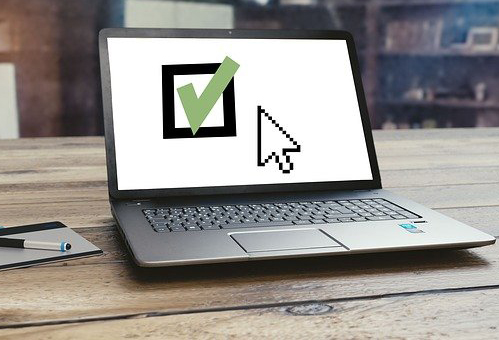Right to Rent: ALL New Tenants Must be Checked from 1 July 2021
Published on June 30, 2021 by Sarah Mac

As of 1 July 2021, landlords have an obligation to start checking the immigration status of all adults before they rent a property to them, regardless of their nationality.
Citizens of the European Economic Area (EEA) and their family members must now have an immigration status in the United Kingdom just like other foreign nationals. An EEA passport or national ID card was once sufficient to prove a right to rent, but can no longer be relied upon.
Most will have applied to the EU Settlement Scheme and will therefore have digital evidence of their UK immigration status.
The scheme was set up to allow people from the EU, Switzerland, Norway, Iceland or Liechtenstein to officially continue living in the UK following Brexit. It was also open to family members of eligible Northern Irish citizens.
Whilst the deadline for most people to apply was 30 June 2021, there is still the opportunity for those who were living in the UK or who had a family member living in the UK as of 31 December 2020, as well as for those who can meet one of the criteria for a later application deadline or who have reasonable grounds for not applying by the June deadline.
Irish citizens potentially can remain in the UK without applying, as can people with indefinite leave to enter or remain.
The goal is to achieve settled status, which forms a right to rent in the UK.
The government has confirmed to landlords however that it will not be necessary to evict a tenant who does not hold settled status, unless they are issued with a ‘Notice of letting to a disqualified person’ by the Home Office. It has also been confirmed that retrospective checks will not be required for EU, EEA or Swiss tenants.
Taking care not to discriminate
Under the Equality Act 2010, landlords may be subject to accusations of discrimination should they only carry out right to rent checks on tenants they think are not UK citizens. For this reason, all tenants must be checked, regardless of their status or nationality.
How can tenants provide evidence of their right to rent?
Tenants with settled status are able to provide evidence of their right to rent by sharing their immigration status digitally. This can be done online via the Right to Rent service on GOV.UK. Landlords can also make hard copy checks using a newly updated property documents list.
During the pandemic, landlords were not required to physically inspect Right to Rent documents or carry out face to face checks. Coronavirus right to rent checks allow documents to be accepted as scans or by video call.
Full checks had been due to return on 21 June 2021, but the government decided to delay the move after the COVID-19 ‘freedom date’ was moved from 21 June to 19 July. Now the physical inspections will be reintroduced at the end of August. This means that scanned or video-based documentation are still acceptable.
What happens if landlords fail to carry out right to rent checks?
The consequences of failing to carry out right to rent checks in line with the law are very serious. Landlords in England could face a five-year prison sentence or an unlimited fine for renting property to someone they know or have reasonable cause to believe does not have the right to rent in the UK. This includes if there was reason to believe that the tenant did not have permission to enter or stay in the UK, their leave had expired or their papers were false or incorrect.
Landlords can also be fined for renting property to someone who is not allowed to stay in the UK unless they can demonstrate that the individual’s right to rent status was checked.
Read more about right to rent and how to carry out checks.

